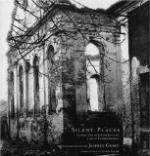CHAPTER TWENTY-SIX
By now it was the first week in March. The weather began to assume a new aspect. During the winter months it had not snowed, for the moisture had all been squeezed from the air, leaving it crisp, brilliant, sparkling. Now the sun, long hesitant, at last began to swing up the sky. Far south the warmer airs of spring were awakening the Kansas fields. Here in the barren country the steel sky melted to a haze. During the day, when the sun was up, the surface of the snow even softened a little, and a very perceptible warmth allowed them to rest, their parkas thrown back, without discomfort.
The men noticed this, and knew it as the precursor of the spring snow-fall. Dick grew desperately uneasy, desperately anxious to push on, to catch up before the complete obliteration of the trail, when his resources would perforce run out for lack of an object to which to apply them. He knew perfectly well that this must be what the Indian had anticipated, the reason why he had dared to go out into the barren grounds, and to his present helpless lack of a further expedient the defaulter’s confidence in the natural sequence seemed only too well justified. Sam remained inscrutable.
The expected happened late one afternoon. All day the haze had thickened, until at last, without definite transition, it had become a cloud covering the entire sky. Then it had snowed. The great, clogging flakes sifted down gently, ziz-zagging through the air like so many pieces of paper. They impacted softly against the world, standing away from each other and from the surface on which they alighted by the full stretch of their crystal arms. In an hour three inches had fallen. The hollows and depressions were filling to the level; the Trail was growing indistinct.
Dick watched from the shelter of a growing despair. Never had he felt so helpless. This thing was so simple, yet so effective; and nothing he could do would nullify its results. As sometimes in a crisis a man will give his whole attention to a trivial thing, so Dick fastened his gaze on a single snow-shoe track on the edge of a covered bowlder. By it he gauged the progress of the storm. When at last even his imagination could not differentiate it from the surface on either side, he looked up. The visible world was white and smooth and level. No faintest trace of the Trail remained. East, west, north, south, lay uniformity. The Indian had disappeared utterly from the face of the earth.
The storm lightened and faint streaks of light shot through the clouds.
“Well, let’s be moving,” said Sam.
“Moving where?” demanded Dick, bitterly. But the old man led forward the hound.
“Remember the lake where we lost the track of that Chippewa?” he inquired. “Well, a foot of light snow is nothing. Mush on, Mack!”
The hound sniffed deep, filling his nostrils with the feather snow, which promptly he sneezed out. Then he swung off easily on his little dog-trot, never at fault, never hesitant, picking up the turns and twistings of the Indian’s newer purpose as surely as a mind-reader the concealed pin.




